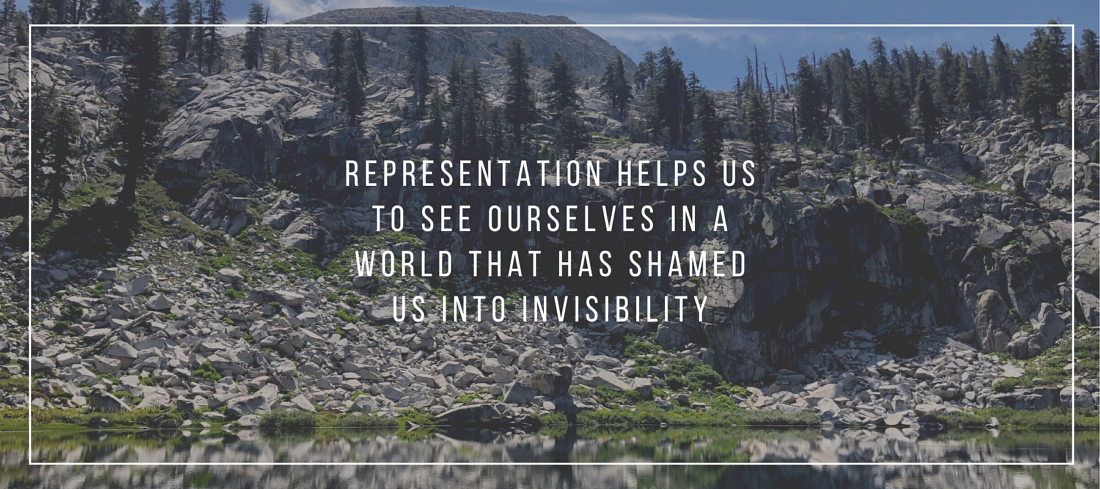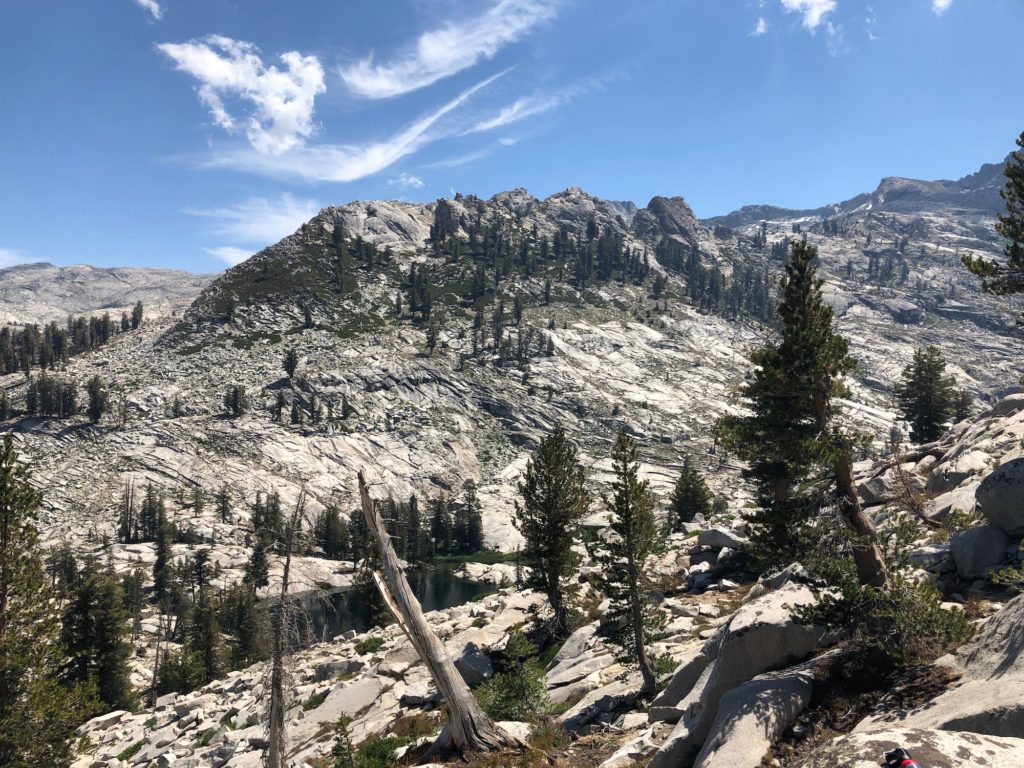REPRESENTATION HELPS US TO SEE OURSELVES IN A WORLD THAT HAS SHAMED US INTO INVISIBILITY
It’s a mere mile to Pear Lake, the final destination of the Lakes Trail in Sequoia National Park.

Posted on Wed 15 Jul 2020 · by Elle Biesemeyer
It’s a mere mile to Pear Lake, the final destination of the Lakes Trail in Sequoia National Park. My pace has slowed since I began my hike just after sunrise when the temperatures were still low. I had been chipper, wrapped in layers that are now tied in bows to my backpack. The air is thin at 9500 feet. I stop to lay out on a smooth boulder atop a cliff overlooking the cascading Tokopah Falls and promise I will make the final push to Pear once I catch my breath.
Of course, I don’t. I lay on my boulder and squint into the sky, feeling so close to those wispy clouds that speed by. I decide, shamelessly, that the final mile will not determine the success of my adventure.
“BY DOING THE THINGS I HAD NEVER SEEN FAT WOMEN DOING AND TRYING TO ASSIMILATE INTO THE STEREOTYPE OF WHAT A HIKER IS SUPPOSED TO LOOK LIKE, I THOUGHT MAYBE, JUST MAYBE, THAT PEOPLE WOULD LEARN TO THINK DIFFERENTLY ABOUT WOMEN LIKE ME.”
If it were three months earlier, turning around would have felt like giving up. Until this point, my love of the outdoors had been predicated upon proving the worth of my fat body. Not to myself, however, but to a society in which fat bodies are, frankly, hated. By doing the things I had never seen fat women doing I thought maybe, just maybe, that people would learn to think differently about women like me. I cultivated my own representation in the outdoors, demanding to be seen. I pushed myself to my limits and threw myself head-first into some of the hardest day hikes I could find. Huffing and puffing up the switchbacks, scrambling shale, and racing the thinner hikers around me, I thought I was happy.
I had driven to Sequoia to celebrate my birthday, my car packed full of my dad’s hand-me-down camping gear. When I arrived at my HipCamp site, braving the hundred-degree weather of late August in Three Rivers, the only thing I wanted to do was turn around. As a nearby nest of wasps unleashed its swarm around my pile of snacks, I unpacked my tent only to find it missing a pole and thought to myself, what the fuck am I doing?
“I HAD SPENT THE WHOLE SUMMER FIGURING OUT HOW FAR I COULD PUSH MY BODY, FORCING MYSELF FURTHER INTO THIS PARADOX OF BEING BIG BUT FEELING SMALL.”
I knew then that whatever I was doing, with however little knowledge I had about doing it, I had to be doing it for myself. Representation for the sake of justifying my own existence to a society that would rather I stay in its margins would never serve me. Rather than simply being challenges to overcome, the heat, the wasps, and the daunting trek in my near future became opportunities. New memories that I would end up journaling about on that boulder. I had spent the whole summer figuring out how far I could push my body, forcing myself further into this paradox of being big but feeling small. It wasn’t until this moment on a sunny boulder one mile from my destination that the outdoors brought me into my own body.

The view from my boulder as I contemplate finishing the journey along the trail, seen extending across the ridge. My can of bear spray sits idle in the corner.
When I arrive back at camp, my host offers me a glass of coconut water with a strong Australian accent. He stares at me in surprise from beneath his cowboy hat when I tell him about my trek. You just hiked fifteen miles? A mix of satisfaction and sadness washes over me. How can I learn to hike for myself when I have the eyes of the world always on me? I empathize with his disbelief. I must look very different from many of his guests and those he sees in outdoor representation.
This story is familiar, I’m sure, if you are part of the AdventurUs Women community. Fat girl climbs a mountain and finds out strength was inside her all along! The outdoors are for everybody! But until we no longer have to tell these stories as if they are extraordinary, until a fat woman can hike for herself and not feel the weight of having to justify her value, these stories are necessary. Representation helps us to see ourselves in a world that has shamed us into invisibility.